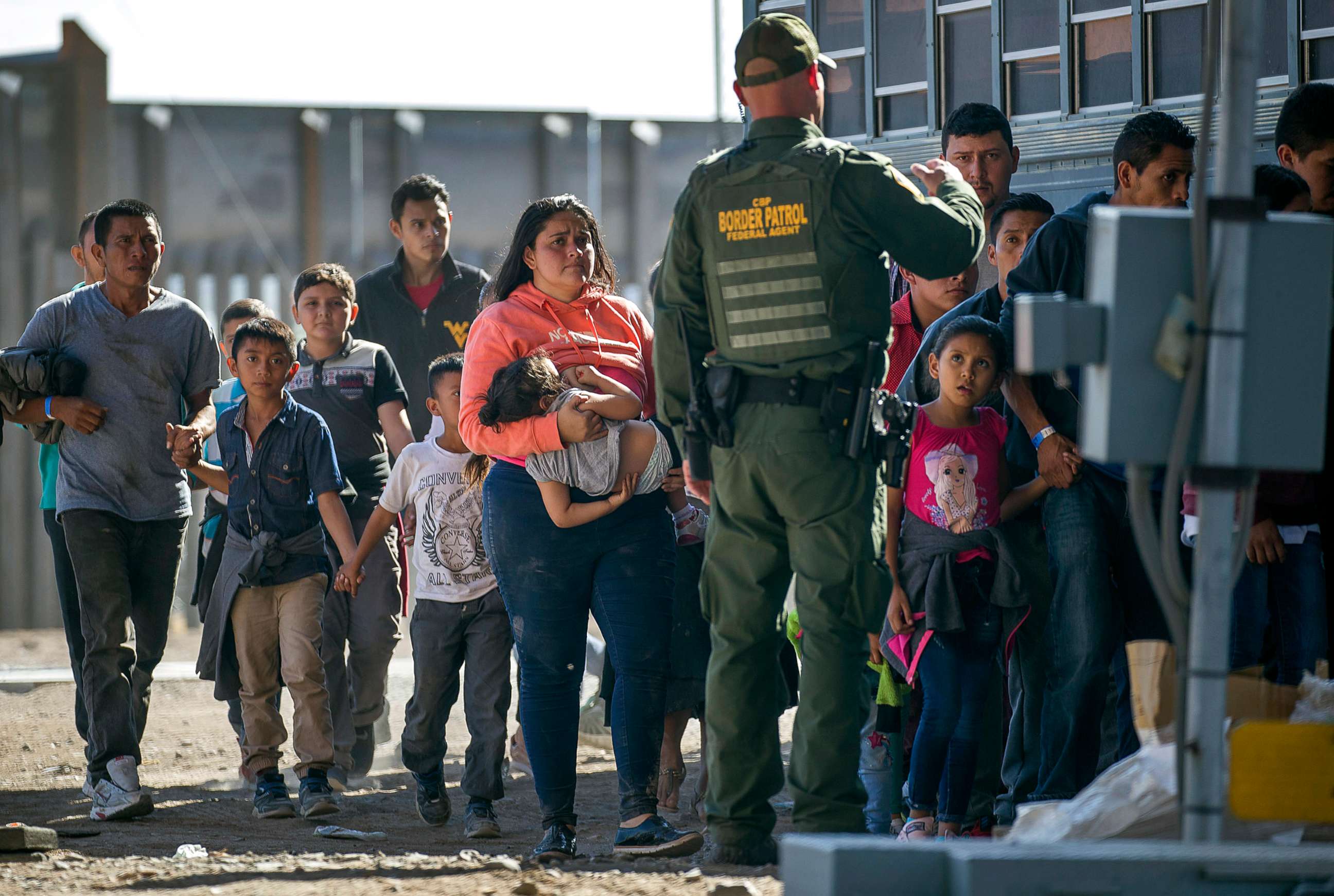Trump to tap FEMA account to step up migrant deportations, House Dems say no way
The plan calls for building new courtroom facilities near the U.S. border.
The Trump administration told Congress recently that it plans to start shuffling $271 million around in its Homeland Security budget so that it can cover the cost of detaining and transporting more undocumented migrants, as well as set up immigration courtrooms closer to the border to quickly process incoming asylum seekers.
The budget document, obtained by ABC News, calls for skimming money from other priorities -- like preparing for natural disasters and cybersecurity -- and giving it to the U.S. Immigration and Customs Enforcement. More than $155 million would be transferred from the Federal Emergency Management Agency, which responds to natural disasters in the U.S., specifically to create new space for immigration courts.
"Insufficient funding could require ICE to release any new book-ins and illegal border violators," the document states.
Congressional Democrats signaled they would try to block it. Democrats oppose Trump's hard line immigration policies, which have stepped up the focus on deporting families living illegally inside the U.S.
"It is of great concern that during the course of this administration, there has been a growing disconnect between the will of Congress … and the Department's immigration enforcement operations, which often lack justification," wrote California Democratic Rep. Lucille Roybal-Allard, chairperson of the House Homeland Security Appropriations Subcommittee, in a letter to acting DHS Secretary Kevin McAleenan.
Senate Democratic Leader Chuck Schumer of New York called it "backwards and cruel" to divert FEMA money at the start of hurricane season in order to detain more migrant families.
"Congress appropriated these funds to meet the American peoples' priorities and I strongly oppose this effort to undermine our constitutional authority," he said in a statement.

In a statement provided to reporters, FEMA said that even with the proposed transfer the money left behind in its accounts "will be sufficient to support operational needs and will not impact ongoing long-term recovery efforts across the country."
Trump administration officials contend that targeting families -- oftentimes without criminal records other than immigration violations -- is necessary to deter more people from coming.
The plan calls for $116 million to pay for another 6,800 or so detention beds and to transport asylum seekers.
But to make that happen without Congress's approval, it would have to transfer money away from other programs, including nearly $14 million from federal air marshals and $4.3 million for cybersecurity.
While $116 million would go toward beds and transportation, another $155 million would go toward helping the administration implement its "Remain in Mexico" policy. That policy has required that more than 15,000 people are required to wait in Mexico while their immigration case winds its way thru court. The Trump administration says that DHS wants to set up "stand-up temporary immigration hearing facilities along the southwest border" to hold hearings for these migrants.
"Because of the court backlog and the impact of outdated laws and court decisions, many of these individuals have disappeared into the country before a judge denies their claim and simply become fugitives," the document states. "Until these underlying factors are resolved, DHS is concerned that these trends could continue and potential out-year operational costs will impact future appropriations."
ABC News producers Sophie Tatum and Mariam Khan contributed to this report.




